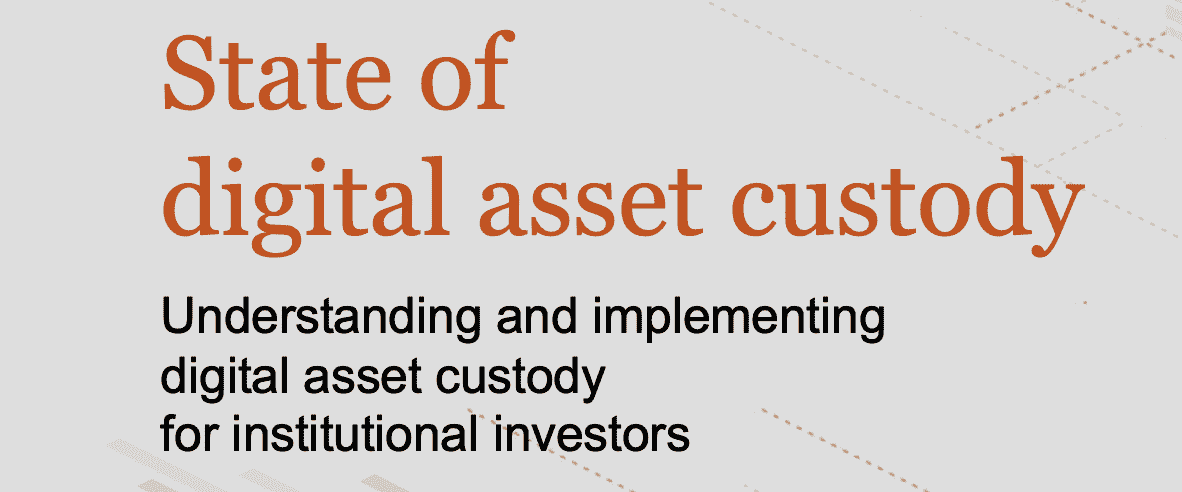Review of the week | Bitcoin fell 20%, but Bakkt did not want to back this pot
In the past week, the encryption market has been baptized, and most cryptocurrencies have collectively dive. Bakkt's bitcoin futures failed to meet expectations and is considered a major cause.

Bakkt and Bitcoin
The much-anticipated ICE's Bakkt exchange officially launched a physical settlement of bitcoin futures contracts this week, but contrary to expectations of the encryption community, the market reaction was flat, with only 71 contracts traded in the first 20 hours of the launch.
Analysts believe that slow entry is a normal phenomenon for regulated futures products. Su Zhu, the chief executive of hedge fund Sanjian Capital, said that most of the regulated futures contracts are often the same on the first day of the opening, simply because not all futures brokers are ready for liquidation. Encryption analyst Joseph Young also said on Twitter that the futures trading volume will increase as brokers "prepare".
- ProgPoW enters the conspiracy cycle, Ethereum 2.0 upgrades or can end the farce
- Dialogue | Paying for the match: Who is better than the anonymous and stable coins?
- Regulatory barriers, executives acknowledge that Libra may postpone the release
However, after the launch of Bakkt's bitcoin futures, the price of the largest value-added cryptocurrency bitcoin fell all the way, and then went out of control. This week, Bitcoin suffered two sharp declines in succession, a drop of nearly 20%, once fell below 8,000 US dollars, and other major cryptocurrencies also collectively dive under the leadership of Bitcoin.
Bakkt's bitcoin futures failed to achieve the expected results is considered to be one of the main reasons for this plunge, but technical analysis shows that there have been multiple signals before this suggest that the market will have changes, such as the same moving average (MACD) The indicator reached the lowest level in 10 months, and the market capital flow index was the lowest level in April. Bakkt is probably just the last straw to trigger this round of downturn.
This week's geopolitical and international situation is also likely to have an impact on Bitcoin. The most important of these is the impeachment investigation that US President Trump is facing. Some analysts believe that the low interest rate policy he supports will benefit Bitcoin.
In addition, this week coincides with the settlement of the Bitcoin futures contract of the Chicago Mercantile Exchange (CME) at the end of the month. Historical data shows that in the past 20 months, the price of Bitcoin fell for 15 months before the settlement of CME futures contracts, averaging The decline was over 2%.
Fundstrat founder Thomas Lee said that the S&P 500 index is closely related to the trend of Bitcoin. "The downturn in Bitcoin occurred after the sell-off in the stock market. Before the bitcoin regained strength, the S&P 500 needed to hit a new high."
Libra
This week, social media giant Facebook's encryption project Libra is still in confrontation with regulators. Bank of Japan Governor Haruhiko Kuroda said, "If Libra is released, it may have a huge impact on society." He called for the highest level of supervision of such stable currencies.
On Tuesday, the US House Financial Services Committee held a hearing with the US Securities and Exchange Commission (SEC) to discuss the regulation of Facebook's Libra and other cryptocurrencies. SEC Chairman Jay Clayton and SEC Commissioners such as Robert Jackson, Hester Peirce, Elad Roisman and Allison Herren Lee attended the meeting. Financial Services Commissioner Maxine Waters stated that “Facebook is seeking to build a new global financial system that is designed to compete with the dollar.”
In Europe, Benoit Coeure, executive board member of the European Central Bank, said at a hearing of the German Parliament's Digital Agenda Committee that Libra is prompting the central bank to consider issues in the global payment system. He said Libra can solve the problem of long cross-border payment, high cost and opacity, but it needs to be fully tested before launch.
He believes that the global payment system still faces two major challenges: access and cross-border retail payments. With the support of large technology or financial companies, many so-called “stabilized coins” programs based on blockchain technology aim to solve at least one of these two issues; Facebook’s Libra hopes to solve both at the same time. problem.
And on Facebook and Libra. Facebook CEO Mark Zuckerberg said in an interview with the Nikkei News, “Many people have questions and concerns, and we are committed to ensuring that all these issues are handled before launch.” But when asked about Libra in 2020 When the plan was launched in the year, he did not respond directly. He replied, "Obviously, we hope to be able to launch soon, without spending a few years. Now what we really care about is to make sure we do better."
David Block, the head of Facebook blockchain, said this week that it is building a payment system between existing infrastructure and a payment network that is not interconnected, rather than building a stable, high-quality network that supports global transactions. It will not reduce costs, will not allow more innovation to enter the market, and will not reduce the barriers for users to embrace financial services.
He said that Libra will enable wallets, merchants and services from around the world to transfer value at a very low cost. It can be settled almost in real time, even without considering the pool of money liquidity of banks around the world. Just as SMTP allows interoperability between any email provider, Libra can be a “protocol” that allows people to move quickly, cheaply, and reliably across service providers, across organizations, and across borders. Conversely, by eliminating the need for numerous intermediaries and the complexity and overhead of operations, costs can be significantly reduced, thereby increasing innovation and opportunities.
Bertrand Perez, managing director of the LIbra Association, said at the blockchain conference at UN headquarters in Geneva that it is in discussions with regulators in Europe and elsewhere to ease regulatory concerns. He said that the launch of Libra in June 2020 was the goal of the organization. However, it may be delayed for one to two quarters due to regulatory reasons. “The important thing is that we need to comply with the requirements of the regulators and ensure that the regulators work with us and are completely satisfied with our solutions,” he said.
Brian Armstrong, CEO of Coinbase, the main cryptocurrency exchange, said on Twitter this week that Facebook's Libra has the potential to change the world. And technology giant IBM is also open to working with Facebook to develop Libra stable coins. Jason Kelley, general manager of IBM blockchain services, said the company is looking to promote collaboration in the field and noted that "blockchain is a team movement."
On the other hand, some Facebook competitors are providing evidence for the Federal Trade Commission's (FTC) investigation of social media giants. According to people familiar with the matter, in the anti-monopoly investigation initiated by the FTC against Facebook, many Facebook and current competitors are reporting to Facebook's unfair competition strategy.
Exchange
This week, the Boerse Stuttgart exchange, Germany's second-largest stock exchange, said it has opened a regulated trading platform for digital assets. The German Boerse Stuttgart Digital Exchange (BSDEX) is a digital asset exchange that is fully regulated under the German Banking Act. Currently only one bitcoin/euro pair is traded. It plans to increase Ethereum, Litecoin and XRP against the euro this year and support tokenized assets in 2020.
The US branch of the main cryptocurrency, Annance US, went online on Tuesday. It supports Bitcoin, Ethereum, XRP, Bitcoin Cash, Litecoin, Coinage and USDT seven cryptocurrencies. In addition, on Thursday, Coin Ann announced the launch of the pledge platform Binance Staking, claiming that “users can simply earn money by depositing and holding funds in the currency to achieve monthly revenue.” Coin said that users do not need to set Any node can be rewarded without worrying about the minimum number of pledges, the length of time, or any other technical requirement.
This week, Bloomberg reported that someone has earned $10 million by recommending users for the currency. According to the article, as the volume of cryptocurrency transactions declines, the exchange has increased customer recommendation rewards. On the Credit Index's recommended rewards list, the top ranked players have already received more than 1,000 bitcoin rewards. In the currency security, the recommender can also get 40% of the referee's transaction fee.
Coinbase, a cryptocurrency exchange, announced this week that customers in New York can now hold, buy, sell, send and receive Link tokens from stellar lumens (XLM) and Chainlink. These cryptocurrencies can now be used on Coinbase.com or on the exchange's iOS and Android apps.
Bitcoin, the Bitcoin exchange, announced that it will re-launch its first exchange-issued platform, Tokinex, as a Bitfinex token sales platform, and will offer P2P digital content and blockchain K.IM tokens on October 22.
Supervision
On the regulatory front, the US SEC has begun to decide whether it should approve the proposed Bitcoin exchange-traded fund (ETF). According to a public document released on Tuesday, the SEC has begun to evaluate proposed rule changes to allow the New York Stock Exchange Arca to list and trade Wilshire Phoenix's bitcoin and fiscal investment trusts.
At Solidus Labs' cryptocurrency compliance summit in New York, SEC Commissioner Hester Peirce also talked about the SEC's perception of cryptocurrencies, how the US improved its new regulations, and how the SEC responded to cryptocurrency fraud. She said at the event that she sees digital assets as a “transaction mechanism” and believes that value storage is an important function of these assets. She also said that the competitiveness of the United States is weakening due to the delay in the introduction of new regulations.
In order to fight the SEC-initiated litigation, Kik announced the closure of the chat application and the dismissal of most employees. The SEC filed a lawsuit against Kik in June alleging that it was suspected of selling hundreds of millions of dollars worth of unregistered securities from Kik's $100 million first-currency issue (ICO) in 2017. Kik said it will lay off more than 100 employees, focusing on the core of the SEC's litigation, which is the cryptocurrency Kin issued by it.
In South America, the Brazilian Securities Commission (CVM) has banned a foreign exchange broker from offering bitcoin options. CVM pointed out in the warning that XM Global Limited does not have the right to operate in Brazil and does not have the right to deal with customers living in Brazil. CVM ordered an immediate suspension of investment issuance in the foreign exchange or derivatives sector. If not, the company will be fined 1,000 reais ($239) a day.
The Central Bank of Venezuela is conducting internal tests to determine if cryptocurrencies can be stored internally. According to people familiar with the matter, this was done at the request of the state-owned Venezuelan Petroleum Company (PDVSA), which is seeking to send Bitcoin and Ethereum to the central bank and ask the financial management agency to use tokens to supply suppliers to the oil company. payment. The bank is also studying the possibility of including cryptocurrencies in the international reserve currency. The country’s international reserve currency is currently only $7.9 billion, the lowest in 30 years.
In Asia, the Iranian government has been cracking down on cryptocurrency mining before the official mining license legislation. According to people familiar with the matter, some people may be sentenced to jail for continuing to operate, and they are also at risk of high fines or the seizure of mining machines. A bitcoin miner estimates that the government has confiscated 80,000 miners in the past four months. He said that when the government closed his business, 30 families lost their income. He himself knows more than 15 bitcoin miners who have been sentenced to jail.
Encryption and blockchain applications
This week, the investment app SoFi has launched cryptocurrency trading services for its more than 800,000 users. SoFi users can initially buy and sell three cryptocurrencies: Bitcoin (BTC), Ethereum (ETH) and Litecoin (LTC). SoFi CEO Anthony Noto said, “The feedback from our users has made it clear that a large number of people are not only interested in understanding cryptocurrencies, but have also started buying and selling cryptocurrencies.”
The encrypted instant messaging service Telegram announced its encrypted wallet with its native currency, Gram (GRM). The alpha version of the Gram wallet is currently active on iOS, but currently the wallet only runs on the Telegram Open Network (TON) test network. So far, users can only create and delete wallets, receive and send Gram, and share wallet addresses.
In addition, Mercedes-Benz's parent company Daimler AG and mechanical engineering company Durr AG conducted a pilot transaction through the Marco Polo Trade Finance Network of blockchain software company R3. Blockchain identity company Evernym has received $2 million in investment from Overstock subsidiary Medici Ventures. Ripple, the San Francisco-based startup of the third-largest cryptocurrency, acquired the payment platform Logos Network to develop decentralized financial (DeFi) products.
This week, a code vulnerability in the Bitcoin Lightning Network was announced. Bitcoin developer Rusty Russell said, "An attacker can claim to have opened a (lightning payment) channel, but either not paying the other party or not paying the full amount."
View
On Wednesday, Caitlin Long, a US blockchain and financial veteran and co-founder of the Wyoming blockchain alliance, wrote in Forbes that from a systems perspective, the traditional financial system is as fragile as Bitcoin. She said that the Fed has repurchased “water injection” nearly $500 billion in the past week, which is a modern version of the bank run. This reveals two major events in the financial market: First, US Treasury bonds are not truly “risk-free” assets that are considered risk-free; second, the capital of large banks is seriously under-resourced. Although this is not enough to prove that another financial crisis is imminent, it has once again increased the risk of the system.
Finally, she concluded that from a systems perspective, the traditional financial system is as fragile as Bitcoin. However, she also said that the Bitcoin system can become more powerful after the impact, and as the system's processing power increases, its network security will also increase.
Mario Draghi, president of the European Central Bank (ECB), said this week that the European Central Bank System (ESCB) is closely monitoring the development of the cryptocurrency industry. Draghi pointed out that "ESCB is analyzing encrypted assets and stable currencies to understand its potential impact on the security and efficiency of monetary policy, payment and market infrastructure, and the stability of the financial system. But so far, stable and encrypted assets are The impact of these areas is limited and their design cannot make it a suitable substitute for money."
The Wall Street Journal issued a statement this week that global central banks are getting closer to issuing their own digital currencies, which will inevitably threaten the hegemony of the dollar. The article said that the future of money may be a digital version of the cash in people's wallets, which may subvert the current monetary system. At present, countries are experimenting with the central bank's digital currency, which will have far-reaching significance.
In addition, the digital currency issued by the central bank may undermine the role of commercial banks. One of the US dollar's opponents may be China's central bank digital currency, a digital version of the yuan that the People's Bank of China plans to issue later this year or next year, which could become the first major global currency to be digitized.
Image source: Baidu pictures
By Liang CHE
This article comes from the push bitpush.news, reproduced need to indicate the source.
We will continue to update Blocking; if you have any questions or suggestions, please contact us!
Was this article helpful?
93 out of 132 found this helpful
Related articles
- [Cold knowledge] Mine construction cost calculation method!
- RSK parent company announces acquisition of Spanish social giant Taringa to integrate its tokens into social applications
- Ruibo finally started on DeFi! Acquisition of Logos to create a Repo-based (XRP) DeFi ecosystem
- Google has been "quantitative hegemony" being screened, and the cryptocurrency community already has a solution?
- Lightning Network Danger Vulnerability Details are disclosed, new versions of clients are not affected
- The strongest and most brain-burning anti-eavesdropping cryptography in history: Quantum key distribution
- Holding $7.6 million, Ethereum's most gas-consuming contract, FairWin, is accused of being a Ponzi scheme.






